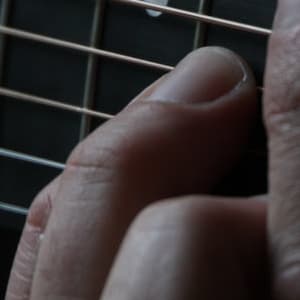cue up: Idiom Meaning and Origin
What does ‘cue up’ mean?
The idiom "cue up" means to prepare or get ready for something, usually by following a specific order or sequence. It is often used in reference to music or audiovisual material, where a cue is given to start or play a particular part.

Idiom Explorer
The idiom "ready up" means to prepare or get ready for a particular task or event. It implies taking action to be fully prepared and organized.
The idiom "eye up" means to look at or observe someone or something with interest or desire, typically in a romantic or sexual way.
The idiom "drum up" means to create or generate support, enthusiasm, or interest for something, usually through active promotion or publicity.
The idiom "do up" means to fasten or close something, such as a button or a zipper, typically when referring to clothing.
The idiom "crop up" means to happen unexpectedly or suddenly, often referring to problems, issues, or events that arise without warning or preparation.
The idiom "crank up" means to increase the intensity, volume, or speed of something, typically referring to machinery or activities. It suggests to make something more powerful, active, or energetic.
The idiom "come up with" means to produce or find an idea, solution, or answer, often unexpectedly or under pressure.
The idiom "come up" means to arise or occur, often unexpectedly or suddenly. It can also refer to reaching a certain point in a discussion or meeting.
"Coil up" is an idiom that means to curl or wind into a tight, circular shape. It is often used metaphorically to describe someone who is getting ready to attack or confront a situation or someone who is preparing for action.
The idiom "choose up" means to select a partner or team in a game or activity. It implies making a decision to join a group or align oneself with others.
Linguistic Riddles
The idiom "cue up" is commonly used in American English and has a variety of meanings depending on the context in which it is used. One fact about the idiom "cue up" is that it originated in the world of theater. In this context, the term "cue" refers to a signal for an actor to begin a particular action or line of dialogue. In this sense, "cue up" means to prepare or position oneself for an upcoming event or action. It is often used to describe actors getting ready before going on stage.
Another fact about "cue up" is that it is also used in the context of music and entertainment. In this sense, "cue up" means to prepare or get ready to play or perform a specific piece of music or to start a specific part of a performance. It can refer to musicians or DJs getting ready to play a particular song or to a stage manager or production crew preparing the lighting, sound, or other technical elements for a performance.
"Cue up" can also be used figuratively in everyday speech to mean preparing or getting ready to do something, especially in a systematic or organized way. For example, someone might say, "Let's cue up the presentation before the meeting" to mean let's get everything ready and in order before the meeting starts.
Frequently, the idiom "cue up" is used in the sense of queuing or lining up for something, often in a literal or physical sense. For example, people might be asked to cue up outside a venue before a concert or a store before a sale.
It is important to note that the idiom "cue up" is informal and is predominantly used in casual and conversational language rather than in formal or academic writing.
The idiom "ready up" is closely related to "cue up." Both idioms involve preparing or getting ready for an upcoming event or action. While "cue up" is more commonly associated with theater and entertainment, "ready up" is a more general phrase that can be used in various contexts. For example, in a business setting, someone might say, "Let's ready up for the meeting" to mean let's prepare ourselves and gather any necessary materials before the meeting starts.
Similarly, the idiom "arm up" is also related to "cue up" in the sense of preparing or getting ready for something. However, "arm up" often implies a more intense or serious level of preparation, particularly in situations that involve conflict or competition. For instance, a coach might tell their team to "arm up" before a big game, meaning they should mentally and physically prepare themselves for the challenges ahead.
The idiom "cue up" has various meanings, including preparing or positioning oneself for an upcoming event or action, getting ready to play or perform a specific piece of music or part of a performance, and queuing or lining up for something. It originated in the world of theater but is now commonly used in music, entertainment, and everyday speech. While it is an informal expression, it is widely understood and used in American English. It is closely related to idioms like "ready up" and "arm up," which also involve preparing or getting ready for specific tasks or situations.
Example usage
Examples of how the idiom "cue up" can be used in a sentence:
- "Please cue up the next song on the playlist."
- "The director asked the actor to cue up his lines before the scene."
- "The DJ quickly cued up the next record to keep the music flowing."
More "Music" idioms



